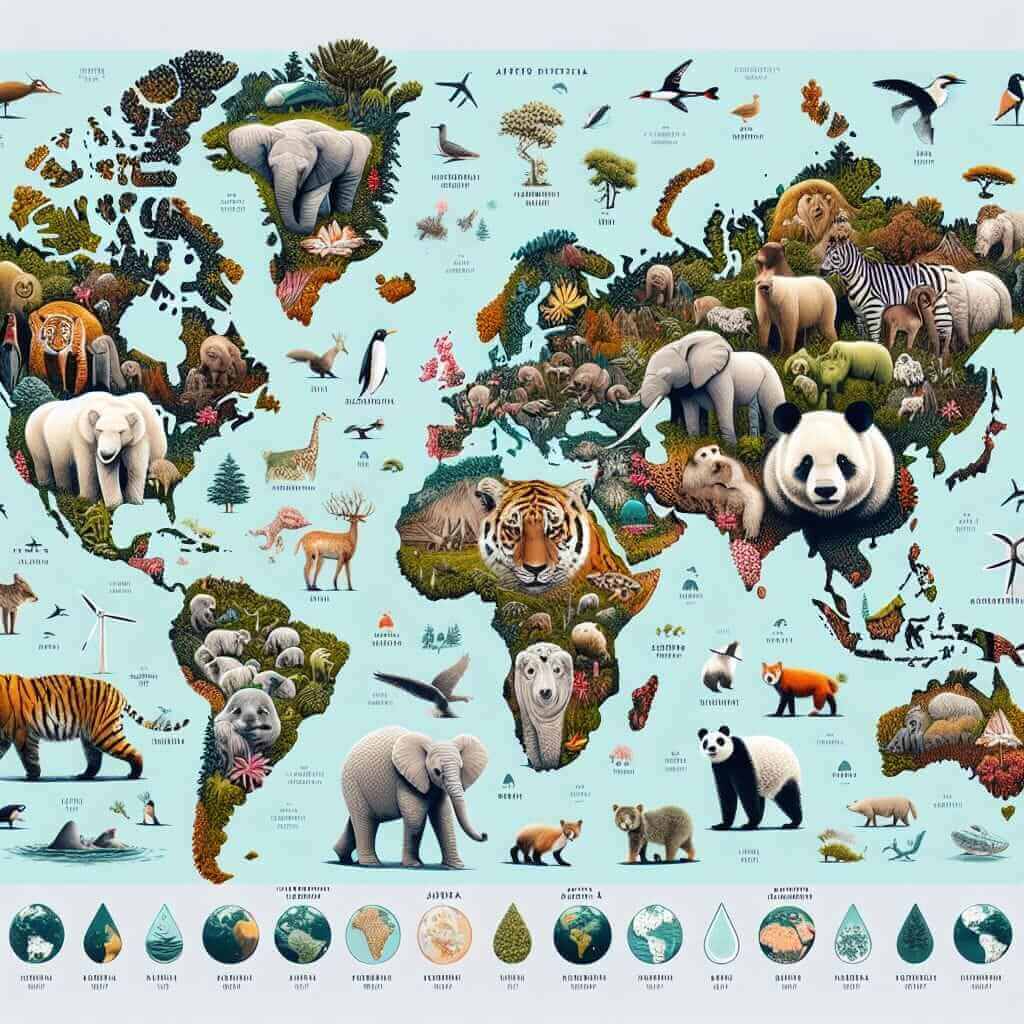The IELTS Reading section tests your ability to understand and analyze complex texts, often drawn from various academic and general interest sources. One recurring theme is “Conservation efforts for endangered species.” This topic has gained considerable attention over the years due to increased awareness about biodiversity loss and the urgent need for conservation. Understanding this theme can not only help you improve your reading skills but also keep you informed about a significant global issue.
Why This Topic Is Important
The issue of conserving endangered species has become a frequent subject in IELTS Reading due to its relevance and newsworthiness. Recognizing keywords and concepts related to this topic can help you predict the kinds of questions you may encounter and increase your overall test preparedness.
Practice Reading Passage: Conservation Efforts for Endangered Species
Below is a reading passage crafted to mimic the structure and complexity of an IELTS Reading test.
Reading Passage: Medium Text
Efforts to conserve endangered species have been varied and complex, spanning global treaties to local grassroots campaigns. The most well-known of these is the Convention on International Trade in Endangered Species of Wild Fauna and Flora (CITES), an international agreement aimed at ensuring that international trade in specimens of wild animals and plants does not threaten their survival.
In addition to international treaties, national and local initiatives play crucial roles. For example, in the United States, the Endangered Species Act (ESA) offers a robust legislative framework for the protection of species at risk. The Act has been credited with the recovery of the American Bald Eagle, among others.
In many countries, non-governmental organizations (NGOs) like the World Wildlife Fund (WWF) have been instrumental in wildlife conservation. These organizations often raise public awareness and provide necessary funding for research and habitat preservation efforts.
On a local level, community-based conservation projects are increasingly popular. These projects often involve local residents in protecting species in their own backyards. In Kenya, for instance, community-based conservation efforts have been vital in protecting elephants and rhinos from poaching.
Despite these efforts, challenges remain. Climate change, habitat destruction, and illegal poaching continue to pose significant threats to endangered species. International cooperation and sustained funding are essential for the long-term success of conservation efforts.
 Global Initiatives for Endangered Species Conservation
Global Initiatives for Endangered Species Conservation
Practice Questions
Multiple Choice (1-4)
-
What is the primary goal of CITES?
- A) To stop all international trade.
- B) To ensure trade does not threaten species survival.
- C) To protect the American Bald Eagle.
- D) To stop climate change.
-
Which of the following is credited with recovering the American Bald Eagle?
- A) CITES
- B) The Endangered Species Act
- C) The World Wildlife Fund
- D) Community-based conservation
-
What role do NGOs like the WWF play in conservation?
- A) Legislative enforcement
- B) Funding and awareness
- C) Habitat destruction
- D) Climate change mitigation
-
In which country have community-based projects been vital for elephant and rhino protection?
- A) United States
- B) Kenya
- C) Australia
- D) Brazil
Identifying Information (True/False/Not Given)
- True/False/Not Given: The Convention on International Trade in Endangered Species (CITES) is a national agreement.
- True/False/Not Given: Climate change is cited as a challenge to conservation efforts in the text.
- True/False/Not Given: Community-based conservation projects have only been implemented in Africa.
Matching Information
-
Match the organization to its role.
-
A) CITES
-
B) ESA
-
C) WWF
-
D) Community-based projects
i) Legislative framework
ii) Habitat protection and funding
iii) International trade regulation
iv) Local resident involvement
-
Answers and Explanations
Answer Key
- B) To ensure trade does not threaten species survival.
- B) The Endangered Species Act
- B) Funding and awareness
- B) Kenya
- False (CITES is an international agreement)
- True
- Not Given
- A-iii, B-i, C-ii, D-iv
Common Pitfalls
- Misinterpreting the role of organizations can lead to incorrect answers. Pay attention to specific responsibilities when reading about multiple entities.
- True/False/Not Given questions often trick students into making assumptions not present in the text. Stick closely to the provided information.
Vocabulary
- Conservation (noun): /ˌkɒn.səˈveɪ.ʃən/ – The protection and preservation of natural resources.
- Poaching (noun): /ˈpoʊ.tʃɪŋ/ – Illegal hunting or capturing of wild animals.
- Legislation (noun): /ˌlɛdʒ.ɪsˈleɪ.ʃən/ – Laws, considered collectively.
Grammar Focus: Passive Voice
The passage frequently uses the passive voice, essential for formal writing, especially when the action is more important than the subject performing it. For example:
- “In many countries, non-governmental organizations (NGOs) have been instrumental in wildlife conservation.”
Tips for High IELTS Reading Scores
- Practice Regularly: Regular exposure to reading passages on various topics improves speed and comprehension.
- Expand Vocabulary: Knowing academic and topic-specific vocabulary helps in better understanding the text.
- Time Management: Allocation of time per passage ensures you complete the section within the given time limit.
- Answer Strategically: Read questions first to identify what information to look for in the passage.
By mastering these practices and understanding the types of questions you may encounter, you can significantly improve your performance on the IELTS Reading section.


